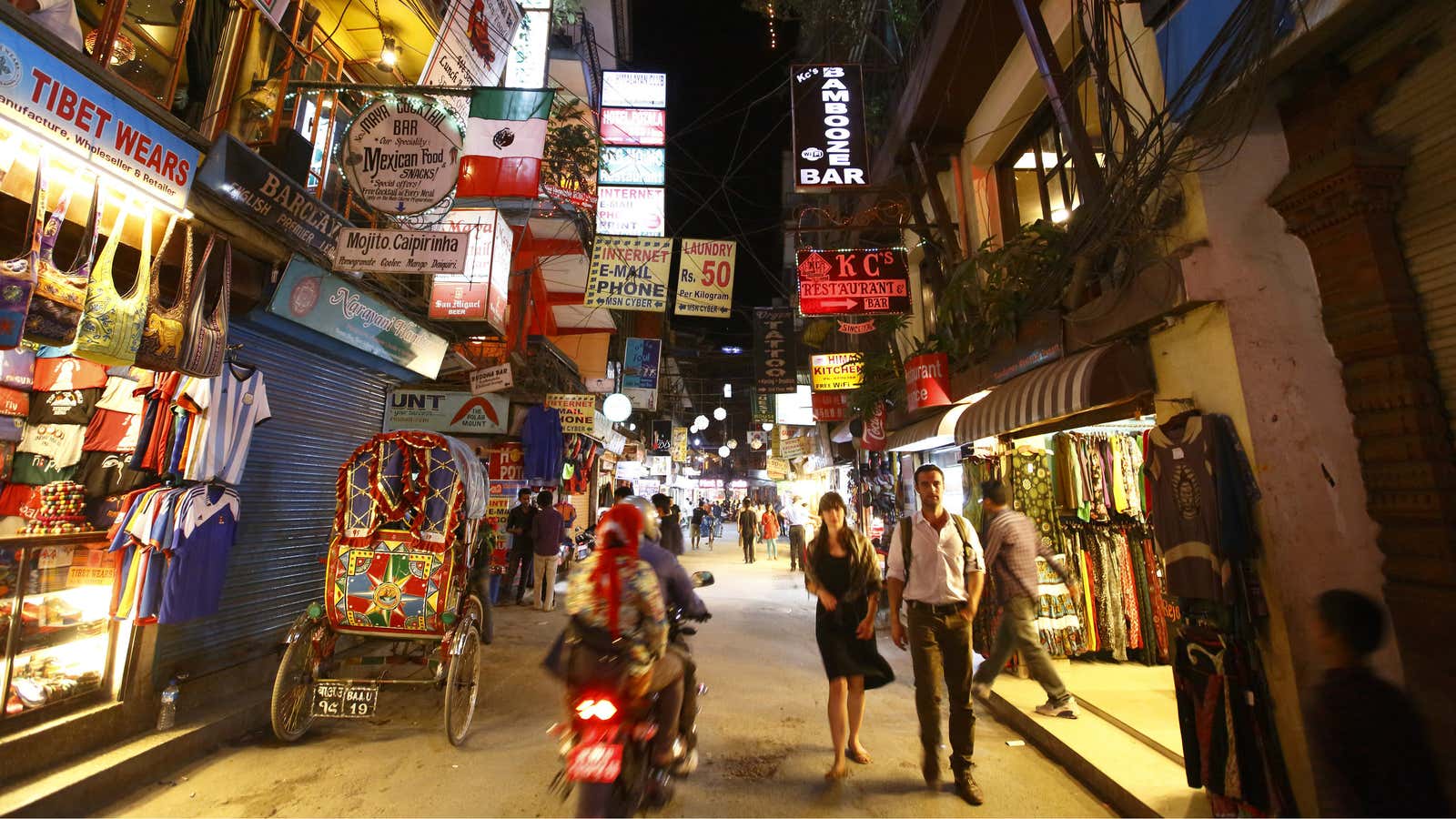Airbnb’s origin story is the stuff that San Francisco startup dreams are made of. When the company was founded in 2008, early adopters started sharing their homes mostly concentrated in US cities. In the 11 years since, it has grown to a global force with a 5 million listings in 191 countries and 81,000 cities, according to the company.
And indeed the company’s growth—in both guest arrivals and its Experiences product—is increasingly being powered by cities that are far from Airbnb’s origins. In a new report, the company noted that these so-called “emerging markets” currently make up its 25 fastest-growing countries for guest arrivals.
So what, exactly, is an emerging market? In its report Airbnb uses a notably broad definition attributed to the IMF, noting that “emerging markets largely [represent] those countries outside of the US, Canada, Europe, Australia, New Zealand, Israel, Japan, Singapore, and Korea.” (It should be noted that the IMF’s tendency to split the world’s economies into two categories—emerging and advanced—has been deemed problematic (paywall) by some investors and economists.)
“In recent years the Airbnb community has surged across emerging destinations around the world, especially those in Asia Pacific, Africa, and Latin America,” Airbnb noted. Currently, more than 30% of listings on the site are in those regions (including the Middle East). By 2030, they expect that more than 400 million users will have checked into an Airbnb in an emerging market since 2008.
Airbnb’s growth in these regions is set against a broader backdrop of global movement. According to the UN’s World Tourism Organization (UNWTO), cited in Airbnb’s report, countries with emerging economies had about 3% more growth in international tourist arrivals than did advanced economies in 2018. The UNWTO predicts that Ecuador, Vietnam, Colombia, Peru, and Nepal had the fastest growth in arrivals for 2018.
In a decade’s time, the UNWTO predicts over 1 billion tourist arrivals will happen in emerging markets each year. This, of course, assumes the general upward trend of growth for arrivals—fueled by the democratization of online travel and airfares that are cheaper than ever before—will continue unperturbed into 2030. In reality, the effects of climate change and climate policy could have major impacts on the ability of humans to travel cheaply and easily in the next decade.
Airbnb’s success in emerging markets is indicative of another global trend: It’s not just that travelers in Airbnb’s more mature markets are traveling more to countries in Africa or Asia, but that more people are traveling within large countries like India and China too. Airbnb noted that in 2018, 91% of guest arrivals in China were from domestic travel (up from 66% in 2015) with India’s domestic travelers making up 78% of total arrivals in 2018
It’s true that, as Airbnb has matured around the world, they’ve also met more regulation and backlash from cities who worry about the effect the service may have on locals, and even the housing market. Ahead of their IPO—rumored to happen in 2019–the company may be trying to show that despite these speed bumps, its customer base is still growing—and indeed on a truly global scale.
